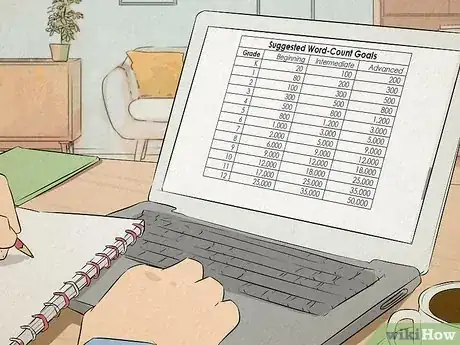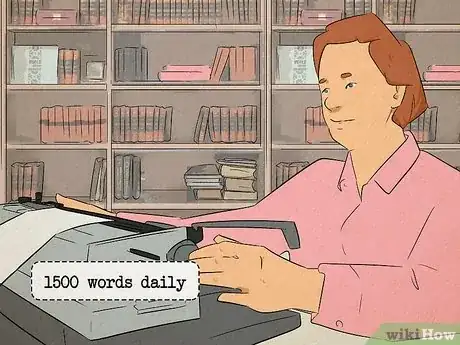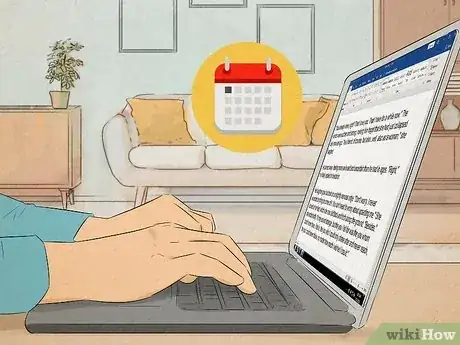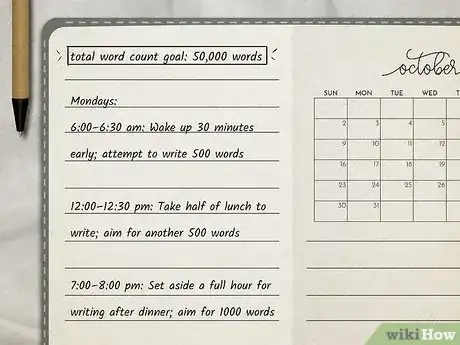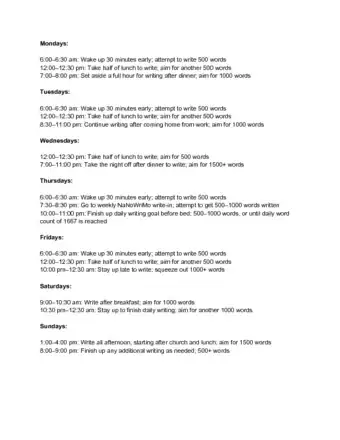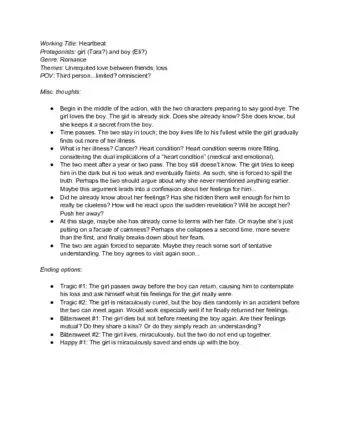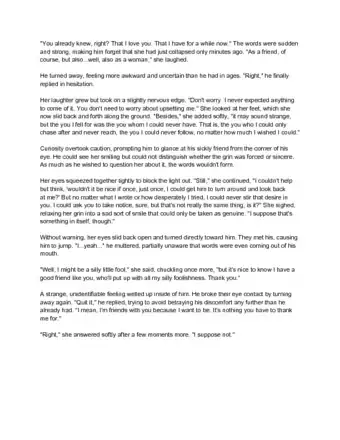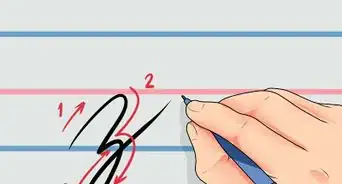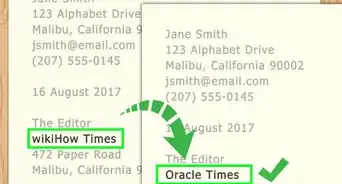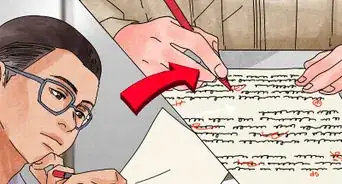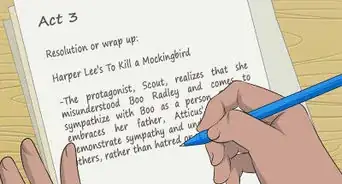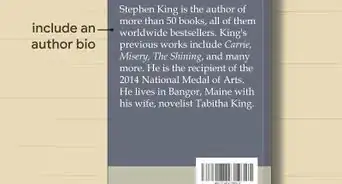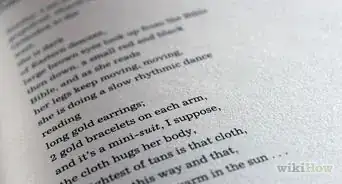This article was co-authored by Grant Faulkner, MA. Grant Faulkner is the Executive Director of National Novel Writing Month (NaNoWriMo) and the co-founder of 100 Word Story, a literary magazine. Grant has published two books on writing and has been published in The New York Times and Writer’s Digest. He co-hosts Write-minded, a weekly podcast on writing and publishing, and has a M.A. in Creative Writing from San Francisco State University.
wikiHow marks an article as reader-approved once it receives enough positive feedback. In this case, several readers have written to tell us that this article was helpful to them, earning it our reader-approved status.
This article has been viewed 124,164 times.
Every year, people sign up for National Novel Writing Month (NaNoWriMo), which challenges its participants to write a 50,000 word novel in November. Even if you’re not participating in NaNoWriMo, you might be interested in trying to finish a draft of the novel you’ve always wanted to write as quickly as possible. By preparing carefully and writing diligently, you’ll be able to finally get your novel down on paper!
Steps
Setting up Your Story
-
1Sign up for a writing challenge. If you are starting anytime between July and November, you can participate NaNoWriMo (www.nanowrimo.org). If you’re starting at a different time, you could also search online to see if there are other 30-day writing challenges that appeal to you.
- You don’t need to sign up for a writing challenge, of course, but it can be a good way to make yourself stick with writing, especially when you get frustrated.[1]
- If you don’t participate in an organized writing challenge, you should set your own ground rules. For instance, figure out what 30-day period you’d like to write during.
-
2Read for inspiration. When preparing to write a novel, try to read as many novels as you can.[2] By reading or rereading novels you admire, you can get a good sense of what you’d like your novel to be like![3]
- While preparing, you can reread your favorite novels from the past or take the opportunity to read novels you’ve never read before.
- Try to read novels that are written in different styles. Some novelists write dense, complicated prose (for instance, William Faulkner and Toni Morrison) while others write in short, relatively simple sentences (such as Ernest Hemingway and Octavia E. Butler). Reading novels written in a range of styles will help you figure out not just what kind of story you want to tell but how you want to tell that story.
Advertisement -
3Decide what kind of novel you want to write. Novels come in a variety of genres, including fantasy, science fiction, romance, historical fiction, and realism. Before you start planning your novel, you should choose what genre you’d like to write in. Writing is usually the most fun when you’re creating the kind of fiction you most like to read!
- You can also write a novel that blends genres. If your want to write a high-fantasy romance novel, go for it!
-
4Keep an idea notebook handy at all times. Whenever you get an idea for a character, plot point, setting, or anything else important, write it down! It’s easy to forget little bits of inspiration, but with a notebook you can keep track of your ideas.[4]
- If you don’t like writing with pen and paper or want to carry a notebook around, you can take notes electronically. There are a number of popular note-taking apps, like Evernote, that you can download for free. (You may already have one downloaded.)
-
5Plan your novel. Once you have some ideas, you’ll need to start fleshing them out into a methodical plan. You can try to outline the entire thing or simply write a brief overview of the plot for yourself. The more detailed your plan is, the easier it might be for you to get started and finish your draft efficiently.[5]
- It might help to keep traditional plot structures in mind. Most stories begin with exposition, lead up to a climax, and then end with a resolution. You can learn more about plot structures in various writing manuals, such as Denise Jaden’s Fast Fiction: A Guide to Outlining and Writing a First Draft Novel in 30 Days.[6]
- In addition to outlining the plot, you should also have plans for your characters, settings, and other important details. Try to write backstories for your characters and make notes about how they fit into your novel.
-
6Find some friends to write with. If you’re afraid you won’t be able to stick to the challenge on your own, writing buddies can help you stay on task.[7] You and your friends can meet at regular times to reflect on your writing or even agree to write together at the same time.[8]
- If you do include friends in the process, make sure that socialization doesn’t distract you from getting your writing done!
- NaNoWriMo has forums that enable writers to support one another and share ideas. While you’re writing your novel, these forums could be a great place to go for community and motivation![9] You can also join general writing forums.
Writing the Novel
-
1Set an overall word-count goal. Novels written for NaNoWriMo usually end up being around 50,000 words long. You should set a goal for yourself that sounds achievable but challenging. Be realistic about what you think you can get done in 30 days, but also don’t make it too easy for yourself.[10]
- You could also set a goal of writing a certain number of chapters or a specific number of double-spaced pages. Set a goal that makes the most sense for you and your novel.
-
2Set a daily word-count quota. You can simply divide the overall number by 30 and make that your daily quota, or you can set different quotas for different days so you can vary your pace. Just make sure that you’re planning to write enough each day to reach your overall goal![11]
- Writing every day will make you a better writer. When you write often, it enhances your ability to observe, so you're going to remember details from different places that you'll bring back to your writing. You might notice something now that might not influence your writing for another year or two, but you're building those observational skills, then drawing them out in language.[12]
-
3Start writing at the beginning of the month. If you put it off, the challenge will only seem harder! You might be anxious about starting, but the sooner you begin the sooner you can find your groove.[13]
- You don’t always have to start writing a novel at its beginning, but for writing one in 30 days it will probably be best to write it linearly from beginning to end.
-
4Establish a routine that works for you. Many writers find that they write most effectively when they work at regular times and in regular places.[14] Choose a time of day you’d think you’d most enjoy writing -- whether it’s morning, afternoon, or night -- and try to write every day at that time. The more you can make writing a part of your daily routine, the easier it will become for you.[15]
-
5Avoid distractions. Try to stay away from the Internet, your phone, TV, socializing, and other distractions while you write. Especially when you feel stuck in your writing, it can be very easy to lose time by letting yourself get distracted.[16]
- Try leaving your phone in a different room and disabling your wifi while you write if need be.
-
6Make checkpoints with rewards for yourself. For example, you could treat yourself to a piece of chocolate every time you write 1,000 words or plan to have a nice meal at your favorite restaurant when you finish your draft. These small rewards can help keep you motivated!
-
7Avoid editing until you’re done with the draft. The goal of writing a novel in 30 days is to get a first draft down, not to achieve perfection. Even if you don’t like something you’ve just written, force yourself to keep going. There will be time to edit later if you want to![17]
Revising Your Work
-
1Take a break when you’re done. After you finish your 30 days of writing, try setting it aside for a while. Then, if you want to revise, or if you have more writing to do to complete your first draft, you can continue working on it! The break helps you see your story more clearly and make decisions that will improve your novel.[18]
- Don’t look at it or talk about it, and try not to think about it too much. That way you’ll be able to return to it with fresh eyes and a clear head when you start the revision process.
-
2Get feedback from people you trust.[19] Tell your readers to be as honest as possible with you. When trying to figure out how to revise your novel, it can be very helpful to know what others think about it.
- Ask your readers what they liked and didn’t like about the novel. You can also ask things like, “Which characters were compelling and which were annoying?” and “Did the plot make sense?”
-
3Figure out if and how you’d like to expand. If you think you might like to try to publish your novel, you might want to expand it. 50,000 words may be a lot, but some publishers will want more, depending on the type of novel you’re writing. Research average word counts for the genre you’re writing or aim for 90,000 words as a good benchmark.[20]
- By knowing what parts of your novel are worth expanding, you’ll have a good idea of how to move forward with it.
- Ask your readers which parts of the book they wish were longer to help figure out what to expand.
-
4Decide what you think doesn’t belong or doesn’t work. When writing a first draft, there are always things you won’t end up liking. Be honest with yourself about what really isn’t working in your draft and decide to fix it or cut it entirely if necessary.
- Even if you’re emotionally attached to a certain character, scene, or subplot in your novel, you may have to cut it if it isn’t moving the plot forward.
-
5Revise your draft. Having reactions from trusted readers and a plan in mind, you’ll be ready to return to your novel. You probably won’t have to write at the furious pace you did to finish your draft in 30 days, but you will still want to have goals and a routine for yourself. You can start revising at the beginning and work your way through the whole novel or work on sections out of order. Whatever makes most sense for your process is fine!
- If you end finding that you want to start your novel over from scratch, that’s fine too. But don’t think of your 30 days of intense writing as wasted time. You’ve learned a lot about the kind of novel you want to write and how to get writing done efficiently even if you don’t go further with what you wrote![21]
Sample Writing Schedule and Examples
Expert Q&A
-
QuestionHow can I stick with writing a novel?
 Grant Faulkner, MAGrant Faulkner is the Executive Director of National Novel Writing Month (NaNoWriMo) and the co-founder of 100 Word Story, a literary magazine. Grant has published two books on writing and has been published in The New York Times and Writer’s Digest. He co-hosts Write-minded, a weekly podcast on writing and publishing, and has a M.A. in Creative Writing from San Francisco State University.
Grant Faulkner, MAGrant Faulkner is the Executive Director of National Novel Writing Month (NaNoWriMo) and the co-founder of 100 Word Story, a literary magazine. Grant has published two books on writing and has been published in The New York Times and Writer’s Digest. He co-hosts Write-minded, a weekly podcast on writing and publishing, and has a M.A. in Creative Writing from San Francisco State University.
Professional Writer There are many ways to write a book, but writing through NaNoWriMo can help you set a goal and a deadline. That motivation in a compressed amount of time forces you to write about 50,000 words in a month and 1,667 words a day. You're also doing it with a community of other writers, which really helps encourage you and holds you accountable.
There are many ways to write a book, but writing through NaNoWriMo can help you set a goal and a deadline. That motivation in a compressed amount of time forces you to write about 50,000 words in a month and 1,667 words a day. You're also doing it with a community of other writers, which really helps encourage you and holds you accountable. -
QuestionHow do I come up with an idea of something to write about?
 Community AnswerTake a little bit from something in your life, then elaborate. Add some things you wish would/could happen related to thing you chose to write about. Or go to a public place and observe people. Make up potential conflicts/life stories for them.
Community AnswerTake a little bit from something in your life, then elaborate. Add some things you wish would/could happen related to thing you chose to write about. Or go to a public place and observe people. Make up potential conflicts/life stories for them. -
QuestionHow would I self-publish a novel?
 Community AnswerThere are many guides for self-publishing on the internet. WikiHow's guide on self publishing a book would be a good place to start.
Community AnswerThere are many guides for self-publishing on the internet. WikiHow's guide on self publishing a book would be a good place to start.
Warnings
- Remember to prioritize. The quality of your schoolwork and/or your work at a day job might start to slip from all the intense writing.⧼thumbs_response⧽
- Don't forget to save your document regularly (unless your document is automatically saved). Make sure you have a copy of your saved novel on an external hard drive, like a disc or a flash drive. This way, if your computer crashes you'll still have a way to access the novel!⧼thumbs_response⧽
References
- ↑ Grant Faulkner, MA. Professional Writer. Expert Interview. 8 January 2019.
- ↑ Grant Faulkner, MA. Professional Writer. Expert Interview. 8 January 2019.
- ↑ https://nybookeditors.com/2016/03/writing-a-novel-in-a-month-is-it-possible-and-should-you-try/
- ↑ https://nybookeditors.com/2016/03/writing-a-novel-in-a-month-is-it-possible-and-should-you-try/
- ↑ http://www.writersdigest.com/online-editor/30-tips-for-writing-a-book-in-30-days
- ↑ http://www.writersdigest.com/online-editor/30-tips-for-writing-a-book-in-30-days
- ↑ Grant Faulkner, MA. Professional Writer. Expert Interview. 8 January 2019.
- ↑ http://www.writersdigest.com/online-editor/30-tips-for-writing-a-book-in-30-days
- ↑ https://nanowrimo.org/terms
- ↑ http://www.writersdigest.com/online-editor/30-tips-for-writing-a-book-in-30-days
- ↑ http://www.writersdigest.com/online-editor/30-tips-for-writing-a-book-in-30-days
- ↑ Grant Faulkner, MA. Professional Writer. Expert Interview. 8 January 2019.
- ↑ http://www.writersdigest.com/online-editor/30-tips-for-writing-a-book-in-30-days
- ↑ Grant Faulkner, MA. Professional Writer. Expert Interview. 8 January 2019.
- ↑ https://writetodone.com/how-to-write-a-novel-in-30-days/
- ↑ http://www.writersdigest.com/online-editor/30-tips-for-writing-a-book-in-30-days
- ↑ https://writetodone.com/how-to-write-a-novel-in-30-days/
- ↑ http://www.writersdigest.com/online-editor/30-tips-for-writing-a-book-in-30-days
- ↑ Grant Faulkner, MA. Professional Writer. Expert Interview. 8 January 2019.
- ↑ https://thewritelife.com/how-many-words-in-a-novel/
- ↑ https://nybookeditors.com/2016/03/writing-a-novel-in-a-month-is-it-possible-and-should-you-try/
About This Article
If you want to write a novel in 30 days for NaNoWriMo, keep in mind that NaNoWriMo's minimum word count requirement is 50,000 words, so you need to use your time efficiently. To get started, plan a routine to make sure you write each day and finish your novel on time. If you need help to stay motivated, give yourself small rewards, like a piece of chocolate for every 1,000 words you write. Additionally, try writing with a group of friends or contacting a local NaNoWriMo group if you work better with company. For tips on how to edit your draft and how to get feedback from readers, read on!







